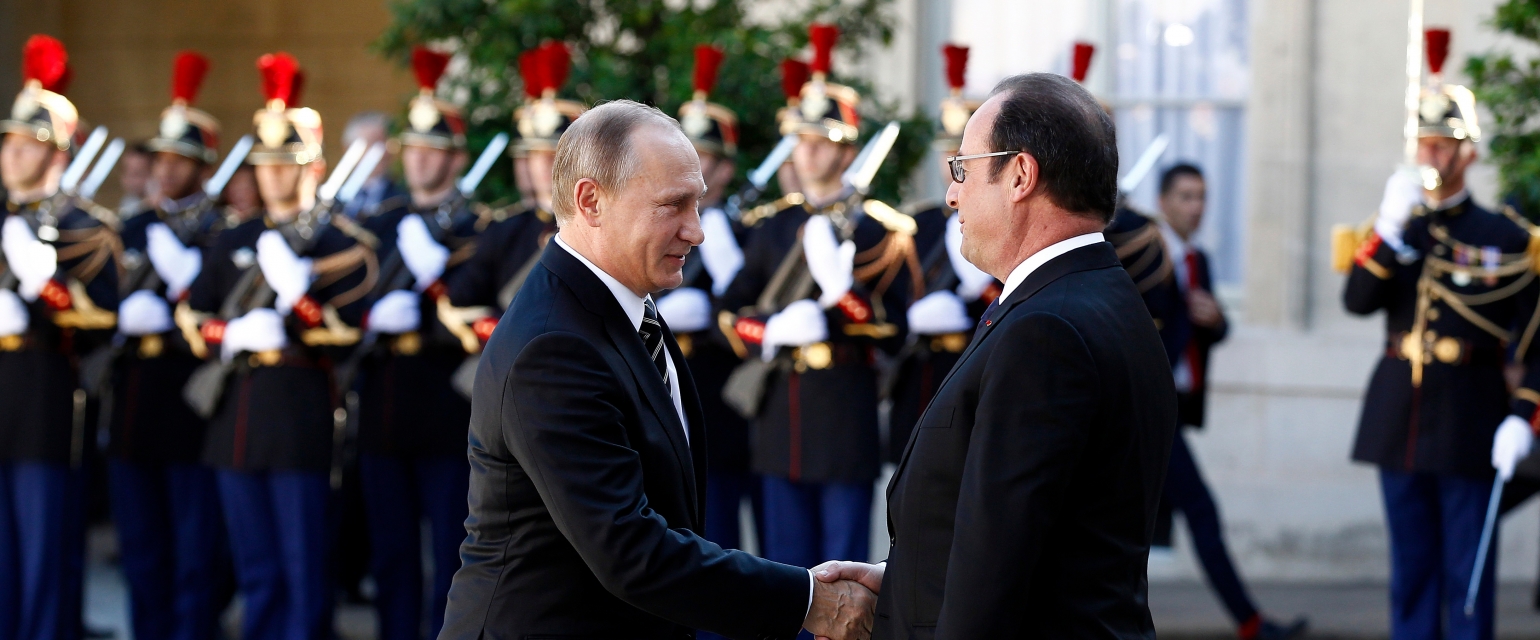

While Russian military operations in Syria received all the headlines, there were other important foreign policy developments in both Ukraine and Turkey. This past week, Russian diplomacy was occupied with three main areas – the nation’s military operations against the Islamic State of Iraq and the Greater Syria (ISIS), developments in Ukraine, and increasingly contentious relations with Turkey.
Russia’s military activities against ISIS
On Wednesday, Oct. 7, Russian Navy ships based in the Caspian Sea launched 26 cruise missiles at ISIS positions. The missiles crossed the airspaces of Iran and Iraq before hitting their targets in Syria. With this step, Moscow achieved three Russian objectives.
First, this secured the de facto coalition with Iran and Iraq against ISIS. Second, this demonstrated the high accuracy, reliability and efficiency of the country’s weapons and communication systems, and the global positioning system GLONASS. That is, Russia made it clear that it is a force to be reckoned with in the Caspian Region and the Middle East, being able to conduct effective military operations in those areas. Thirdly, this was an actual wartime demonstration of Russia’s newest weapons for potential customers in the largest and ever-growing arms market in the world – the Middle East.
On that same day, Russian President Vladimir Putin, in a meeting with Defense Minister Sergei Shoigu, supported the proposal of French President Francois Hollande to combine Syrian government troops with the “healthy opposition” in the Free Syrian Army, in order to fight ISIS.
Russia is seeking a viable Sunni opposition in Syria, and believes that only this will lead to a lasting solution of the present conflict. In the event of a likely victory over ISIS, Sunni groups will have to fill the power vacuum that is created, and in the future become part of the new Syrian establishment.
Regulation of the Ukrainian crisis
One of the results of the meeting of the Normandy Four in Paris on Oct. 2 was the extension of the Minsk Agreements, which were scheduled to expire in 2015.
In eastern Ukraine, in the regions not controlled by Kiev, with the participation of Russia, the governments there have decided to postpone the election of the heads of cities and regions to a later date, and hold them in accordance with Ukrainian legislation – in February 2016, instead of Oct. 18 and Nov. 1 as they had planned before.
Meanwhile, many Ukrainian politicians have now started talking about the disadvantages for Kiev in the extension of the Minsk Agreements. In particular, among Ukrainian nationalists, a belief is spreading that the participation of Russian-speaking eastern regions of Ukraine in the political life of the country is not a desirable option.
Continue reading at Russia Direct
For a major power like Russia, with the pretentions to be a global player, a question about state building in a small republic with limited international recognition is an obscure subject, just one element in the bigger political picture. However, a political crisis that unfolded in Abkhazia this year has given the discussions a new urgency.
The major Russian foreign policy news last week included new developments for anti-Russian sanctions, talks on settling the Syrian crisis, and publication of investigative reports as to the reasons behind the crash of Flight MH17 in Ukraine.
In the Russian public consciousness, however, the South Caucasus and its problems are viewed less through the lens of ideology and more as a pragmatic reality. Nevertheless, the Russian side needs guarantees that an attack similar to the Georgian aggression of 2008 will never be repeated.
Many opponents of Russia are already regarding this as his surrender of the southeast of Ukraine; however in reality, this is just one more step towards the realization of Russian interests in Ukraine. The goal is to minimize potential damage.